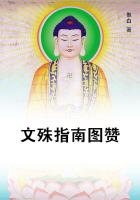He did not give her his hand, but, turning abruptly, he walked away from her. But already at the door he felt that he was sorry for her, and he glanced at her across his shoulder. There, in the corner, she stood alone, her head bent, her hands hanging motionless.
Understanding that he could not leave her thus, he became confused, and said softly, but without repenting:
"Perhaps I said something offensive--forgive me! For after all Ilove you," and he heaved a deep sigh.
The woman burst into soft, nervous laughter.
"No, you have not offended me. God speed you.""Well, then goodbye!" repeated Foma in a still lower voice.
"Yes," replied the woman, also in a low voice.
Foma pushed aside the strings of beads with his hand; they swung back noisily and touched his cheeks. He shuddered at this cold touch and went out, carrying away a heavy, perplexed feeling in his breast, with his heart beating as though a soft but strong net were cast over it.
It was night by this time; the moon was shining and the frost covered the puddles with coatings of dull silver. Foma walked along the sidewalk, he broke these with his cane, and they cracked mournfully. The shadows of the houses fell on the road in black squares, and the shadows of the trees--in wonderful patterns. And some of them looked like thin hands, helplessly clutching the ground.
"What is she doing now?" thought Foma, picturing to himself the woman, alone, in the corner of a narrow room, in the reddish half-light.
"It is best for me to forget her," he decided. But he could not forget her; she stood before him, provoking in him now intense pity, now irritation and even anger. And her image was so clear, and the thoughts of her were so painful, as though he was carrying this woman in his breast. A cab was coming from the opposite side, filling the silence of the night with the jarring of the wheels on the cobble-stones and with their creaking on the ice. When the cab was passing across a moonlit strip, the noise was louder and more brisk, and in the shadows it was heavier and duller. The driver and the passenger in it were shaking and hopping about; for some reason or other they both bent forward and together with the horse formed one big, black mass. The street was speckled with spots of light and shade, but in the distance the darkness seemed thick as though the street were fenced off by a wall, rising from earth to the skies. Somehow it occurred to Foma that these people did not know whither they were going. And he, too, did not know whither he was going. His house rose before his imagination--six big rooms, where he lived alone. Aunt Anfisa had gone to the cloister, perhaps never to return--she might die there. At home were Ivan, the old deaf dvornik, the old maid, Sekleteya, his cook and servant, and a black, shaggy dog, with a snout as blunt as that of a sheat-fish.
And the dog, too, was old.
"Perhaps I really ought to get married," thought Foma, with a sigh.
But the very thought of how easy it was for him to get married made him ill at ease, and even ridiculous in his own eyes. It were but necessary to ask his godfather tomorrow for a bride,--and before a month would pass, a woman would live with him in his house. And she would be near him day and night. He would say to her: "Let's go for a walk! " and she would go. He would tell her: "Let's go to sleep!"and again she would go. Should she desire to kiss him, she would kiss him, even though he did not like it. And if he should tell her: "Go away, I don't want it," she would feel offended. What would he speak to her about? What would she tell him? He thought and pictured to himself young ladies of his acquaintance, daughters of merchants. Some of them were very pretty, and he knew that any one of them would marry him willingly. But he did not care to have any of them as his wife. How awkward and shameful it must be when a girl becomes a wife. And what does the newly-married couple say to each other after the wedding, in the bedroom? Foma tried to think what he would say in such a case, and confused, he began to laugh, finding no appropriate words. Then he recalled Luba Mayakin. She would surely be first to say something, uttering some unintelligible words, which were foreign to herself. Somehow it seemed to him that all her words were foreign, and she did not speak as was proper for a girl of her age, appearance and descent.
And here his thoughts rested on Lubov's complaints. His gait became slower; he was now astounded by the fact that all the people that were near to him and with whom he talked a great deal, always spoke to him of life. His father, his aunt, his godfather, Lubov, Sophya Pavlovna, all these either taught him to understand life, or complained of it. He recalled the words said by the old man on the steamer about Fate, and many other remarks on life, reproaches and bitter complaints against it, which he happened to hear from all sorts of people.
"What does it mean?" he thought, "what is life, if it is not man?
And man always speaks as if life were something else, something outside of man, and that something hinders him from living. Perhaps it is the devil?"A painful feeling of fear fell on the youth; he shuddered and hastily looked around. The street was deserted and quiet; the dark windows of the houses stared dimly into the dark of night, and along the walls and fences Foma's shadow followed him.
"Driver!" he cried out aloud, quickening his steps. The shadow started and crawled after him, frightened, black, silent. It seemed to Foma that there was a cold breath behind him, and that something huge, invisible, and terrible was overtaking him. Frightened, he almost ran to meet the cab, which appeared noisily from the darkness, and when he seated himself in the cab, he dared not look back, though he wished to do so.















